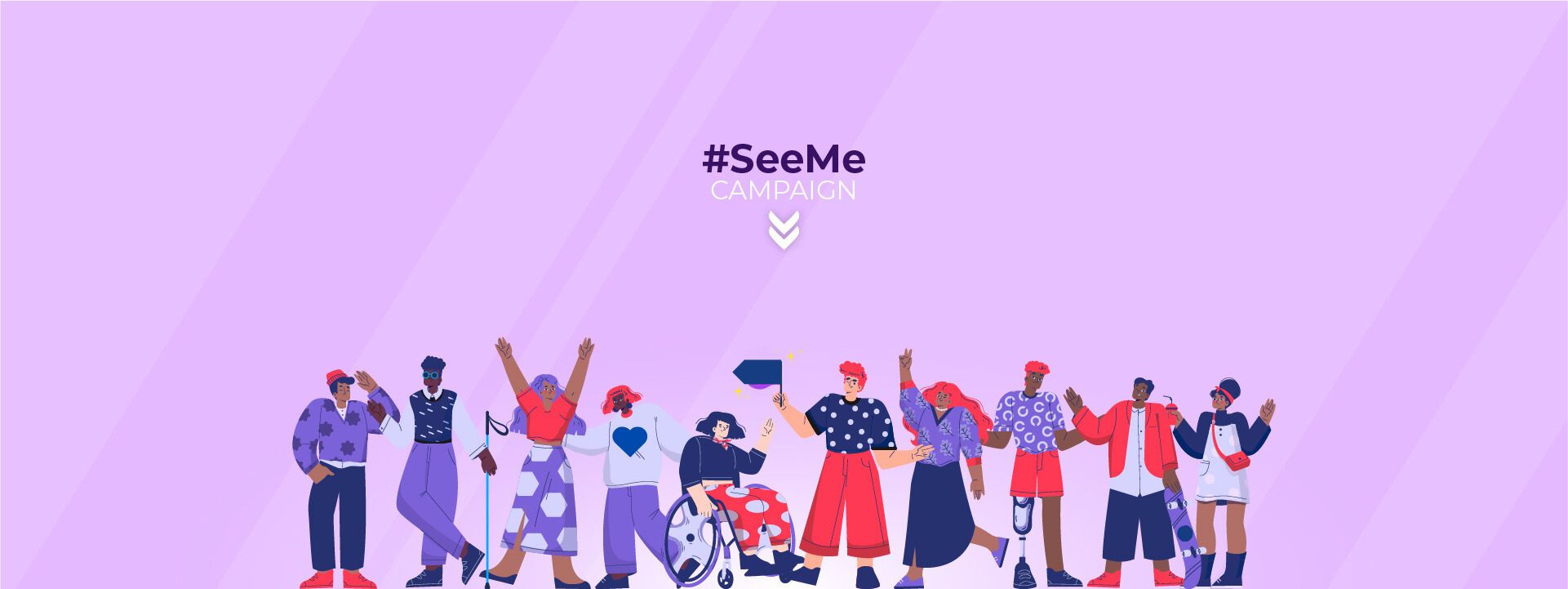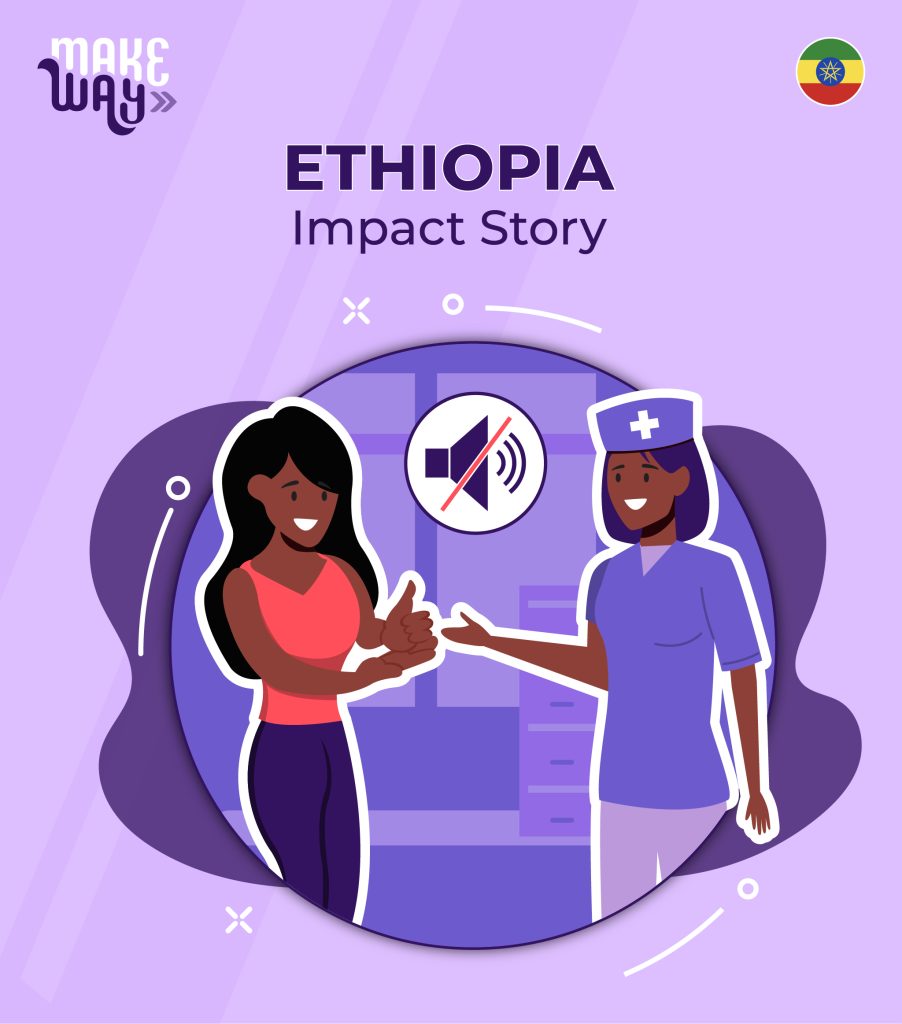Firehiwot Yenealem, Henock Solmon and Negash Usman
Make Way’s advocacy advancing comprehensive SRHR access for youth with hearing impairments in Ethiopia
Firehiwot Yenealem, Henock Solmon and Negash Usman
In Ethiopia, youth with hearing impairments face many barriers to sexual and reproductive health and rights (SRHR) services: from stigma and policy gaps to the lack of trained, inclusive healthcare workers. Through the Make Way programme, in partnership with the Ethiopian Women with Disabilities National Association (EWDNA), healthcare providers receive sensitisation training and sign language skills. Read more →
For persons with hearing impairments, the barriers to SRHR access are often innumerable, from social stigma to exclusionary education systems, policy failures to socio-economic factors. A lack of trained healthcare workers in how to approach these patients makes it challenging to access critical services when needed.
To address this gap, the Make Way programme in partnership with Ethiopian Women with Disabilities National Association (EWDNA) have been conducting sensitisation workshops for healthcare professionals from select healthcare centers in Ethiopia. Alongside the workshops, healthcare workers undergo a 15-day introductory course in sign language, to equip them with essential communication skills necessary to address the unique challenges faced by individuals with hearing impairments.
Henock Solmon is a midwife in the Department of Delivery and Safe Abortions at Jan Meda Health Center in Ethiopia’s capital, Addis Ababa. Henock and his colleagues have been attending Make Way’s five-day sensitisation workshops, as well as sign language courses for healthcare providers. He says he is learning that adopting inclusive approaches is key to reaching marginalized youth.
“We have introduced sign language to other staff members and also tried to improve our facilities by building a couple of ramps. Now, most staff are more aware and inclusive, improving the entire process from registration to service point. Even those who don’t know sign language actively seek help from colleagues who do, making inclusive communication part of our workplace culture,” Henock says.
His colleague who also attended the workshops, Firehiwot Yenealem, reiterates the importance of improved communication in building trust: “I’ve personally witnessed how people with hearing impairments feel recognized when spoken to in sign language, which plays a crucial role in improving communication and, ultimately, better service.”
Make Way’s intersectional SRHR
The Make Way programme aims to break down barriers to SRHR through mutual capacity strengthening, in partnership with its implementing partners in Ethiopia. The programme also develops and shares intersectional tools through which youth, duty-bearers and partners alike can better understand individuals’ overlapping vulnerabilities, and how those vulnerabilities affect one’s SRHR.
Negash Usman, Country Consortium Coordinator for Make Way Ethiopia reflects on the ways that the programme has further advanced their work, noting that while inclusion has long been a core value of some partners, Make Way enhanced its practical application: “in more meaningful and measurable ways and embedding it more deeply into day-to-day programming,” he says.
In further commitment to intersectional SRHR, partners have made efforts towards lobbying the concept to government partners for enhanced access to SRH services for marginalized youth. Some of the gains from this according to Negash include 24/7 sexual and reproductive health (SRH) service for youth at healthcare centers, increased budget for SRH and assignment of a sign language interpreter at select health facilities within Make Way programme’s implementation areas.
As for the healthcare worker, Henock Solmon, knowledge on the intersectional approach has provided him and others a strong foundation for ensuring their service delivery is inclusive for all. As he affirms: “I have built stronger relationships with clients, some of whom even contact me outside consultation hours. One example is a deaf mother who recently gave birth and continues to reach out for postnatal care. So, I can say that I am now more intentional about my communication and building trust with my clients.”
Article by Edna Ninsiima.





